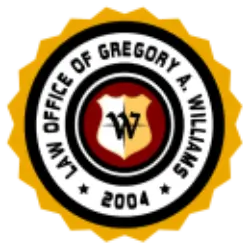Under 42 U.S.C. § 1983 (hereinafter, “Section 1983“), may a state official sued in their individual capacity be entitled to qualified immunity? Here’s my point of view.
(IMPORTANT: This article is for informational purposes only and is based upon my point of view. Due to the rapidly changing nature of the law, we make no warranty or guarantee concerning the accuracy or reliability of the content in this article. No content on this site, regardless of date, should ever be used as a substitute for direct legal advice from your attorney. This article may be a repost from one of our retired blogs. Please review our Disclaimer|Terms of Use|Privacy Policy before proceeding.)
INDIVIDUAL CAPACITY STATE OFFICIALS
A state official sued in his or her individual capacity may be entitled to qualified immunity, unless the official violated a constitutional right of the plaintiff and that right was “clearly established.” Nelson v. Corr. Med. Servs., 583 F.3d 522, 528 (8th Cir. 2009).
QUALIFIED IMMUNITY
“[Q]ualified immunity is an entitlement not to stand trial, that is an immunity from suit rather than a mere defense to liability.” Rudebusch v. Hughes, 313 F.3d 506, 514 (9th Cir. 2002) (citing Mitchell v. Forsyth, 472 U.S. 511, 526, 105 S.Ct. 2806, 86 L.Ed.2d 411 (1985) (emphasis in original)) (internal quotation marks omitted).
As a result, “qualified immunity safeguards all but the plainly incompetent or those who knowingly violate the law.” Id. (citing Brewster v. Bd. of Educ. of the Lynwood Unified Sch. Dist., 149 F.3d 971, 977 (9th Cir. 1998) (quoting Malley v. Briggs, 475 U.S. 335, 341, 106 S.Ct. 1092, 89 L.Ed.2d 271 (1986)) (internal quotation marks omitted).
This paradigm “allows ample room for reasonable error on the part of the [official].” Id. (internal citations and quotation marks omitted). And “[i]t encompasses both mistakes of fact and mistakes of law.” Id. (internal citations and quotation marks omitted).
SECTION 1983 QUALIFIED IMMUNITY: THE TWO-STEP PROCESS
Analysis of a Section 1983 qualified-immunity issue involving an individual capacity state official typically involves a two-step process.
STEP 1: The first step requires the following question be answered: “Taken in the light most favorable to the the party asserting injury, do the facts alleged show the officer’s conduct violated a constitutional right?” Rudebusch, 313 F.3d at 514 (citing Saucier v. Katz, 533 U.S. 194, 201, 121 S.Ct. 2151, 150 L.Ed.2d 272 (2001)).
STEP 2: “Only after determining whether the constitutional right was violated does the court proceed to the second step of the two-part inquiry as follows: whether the law was so clearly established that ‘a reasonable official would understand that what he is doing violates that right?'” Id. (internal citations omitted).
Affirmative answers at both steps of the inquiry will typically prevent the state official from claiming qualified immunity. However, “while the sequence set forth [in Saucier ] is often appropriate, it should no longer be regarded as mandatory, and courts are permitted to exercise their sound discretion in deciding which of the two prongs of the qualified immunity analysis should be addressed first in light of the circumstances in the particular case at hand.” Nelson v. Corr. Med. Servs., 583 F.3d at 528 (citing, Pearson v. Callahan, __ U.S. __, 129 S.Ct. 808, 815-16, 172 L.Ed.2d 565 (2009)).
THE POLICY
Ultimately, “the concern of the immunity inquiry is to acknowledge that reasonable mistakes can be made as to the legal constraints on particular [official] conduct.” Id. (internal citations omitted). And, thus, the qualified immunity analysis “occurs in the specific context of ‘the situation … confronted’ by the official.” Id. (internal citations omitted).
CONCLUSION
Under Section 1983, I believe that a state official sued in their individual capacity may be entitled to qualified immunity.
LEARN MORE
If you would like to learn more, then consider contacting an experienced attorney to discuss your case. This article is not offered as legal advice and will not establish an attorney-client relationship with Law Office of Gregory A. Williams, or the author of this article; please refer to our Disclaimer | Terms of Use | Privacy Policy for more information.


